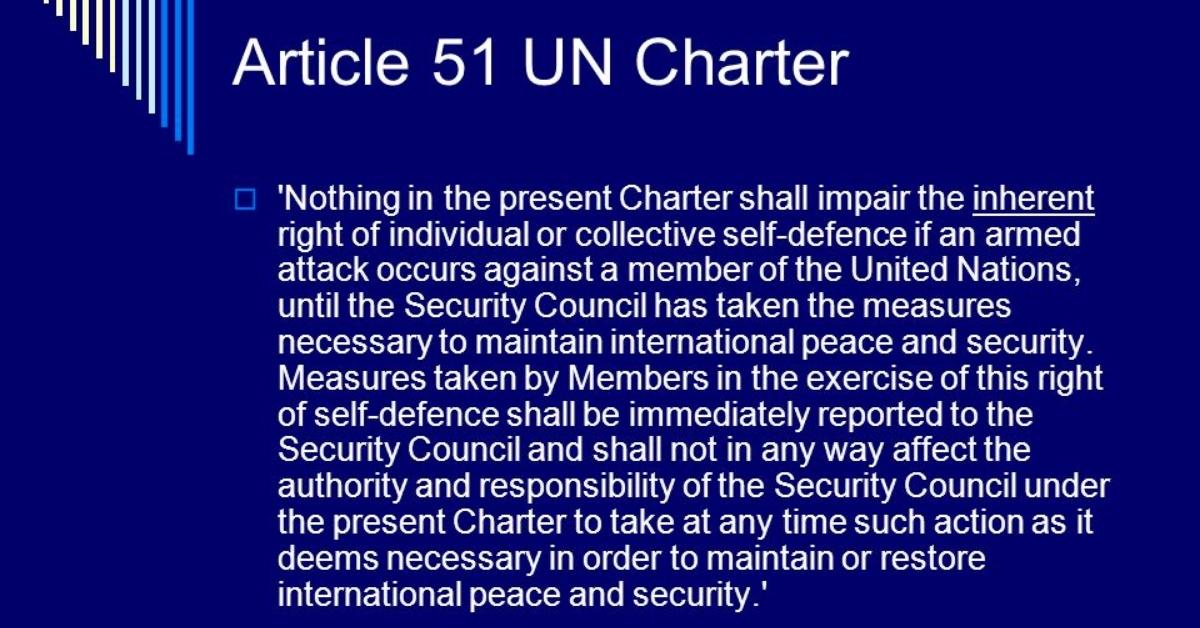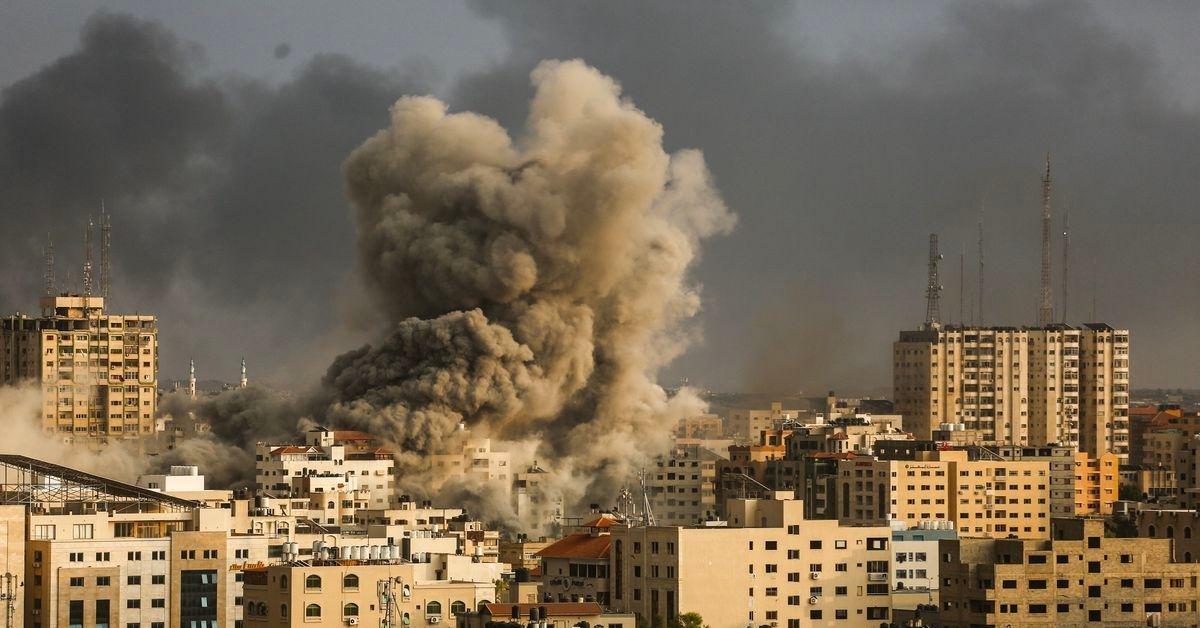The recent events in Israel and Hamas have left the world grappling with a complex and emotionally charged situation. International law provides a framework to analyze and understand these events. These are crucial as new information continues to emerge and debates over unconfirmed allegations abound over laws of war.
Contents
Two fundamental principles emerge from this legal framework: the separation of the “why” and “how” of war.
The Evolution of International Law
The modern laws of war have their roots in historical conflicts but took their current form as a response to the devastating world wars of the 20th century.
International treaties and agreements, such as the Kellogg-Briand Pact of 1928 and the U.N. Charter of 1945, strictly prohibit the use of force between states except in self-defense. These laws, collectively known as “jus ad bellum,” regulate the initiation of war.
However, the laws of war extend beyond the question of why a conflict began. They also encompass how the war is conducted, governed by “jus in bello,” or the law regulating the conduct of hostilities.
Separating Causes and Conduct
One crucial aspect of international law is the clear distinction between the justice or injustice of a cause for war and the obligation to adhere to humanitarian laws during the conflict.
This separation prevents conflating the justness of the conflict itself with the manner in which it is conducted. It allows us to maintain focus on the complexities of war and the underlying political questions without losing sight of the shared humanity on all sides.
Protecting Civilians
One of the central tenets of international humanitarian law, also known as jus in bello, is the unequivocal protection of civilians during armed conflicts.
This framework encompasses several crucial elements, including the 1949 Geneva Conventions and the 1977 protocols, which dictate the permitted methods and means of warfare.
The cornerstone of this body of law is the principle that civilians should not be targeted under any circumstances. This principle applies to all parties involved in armed conflicts, not just state actors.
It also states that an attack must not be carried out if it is expected to cause incidental loss of civilian life, injury to civilians, damage to civilian objects, or a combination thereof, which would be excessive in relation to the anticipated military gains.
In addition to the prohibition of targeting civilians, international humanitarian law includes several other provisions:
- Prohibition of Hostage Taking: Hostage taking is strictly prohibited.
- Protection of Civilian Objects: Deliberate and excessive destruction and appropriation of property, especially civilian infrastructure, is prohibited.
- Protection of Hospitals: Hospitals, as essential civilian institutions, must be safeguarded from attacks.
- Access to Humanitarian Relief: Civilians in need must have access to humanitarian relief and aid.
Self-Defense and International Humanitarian Law
Under international law, jus ad bellum governs the conditions under which states can resort to war or the use of armed force.
Self-defense is one of the justifications for war, as outlined in Article 51 of the UN Charter. It preserves the right to self-defense in cases of an armed attack.

However, even when invoking self-defense, states remain subject to the constraints of international humanitarian law, jus in bello.
This means that while states have the right to defend themselves, they are not allowed to use unlimited means. Also, their actions must still aim to minimize suffering in armed conflicts.
The lawful exercise of self-defense does not absolve states from their obligations under international humanitarian law.
International Criminal Law: Accountability for War Crimes
Another crucial aspect of the legal framework is international criminal law. It falls within the jurisdiction of institutions like the International Criminal Court (ICC) and national courts.
The ICC has jurisdiction over individuals for various crimes, including war crimes, crimes against humanity, and genocide.
War crimes are described as “grave breaches of the Geneva Conventions.” It encompass serious violations of the laws and customs applicable in international armed conflicts. It includes those provisions mentioned above.
Crimes against humanity include acts like murder, extermination, deportation, or forcible transfer of population when committed as part of a widespread or systematic attack against any civilian population.
The Current Context
In the conflict between Israel and Hamas, war crimes and crimes against humanity are the most likely crimes to be investigated and charged.
Both sides have faced accusations of genocide. Although prosecuting this crime is more challenging. It requires proving acts committed with the intent to destroy a national, ethnical, racial, or religious group, irrespective of an armed conflict.
Notably, Israel is not a member of the ICC. However, Palestine joined in 2015. It allowed the ICC to exercise jurisdiction over crimes committed within its territory.
In 2021, the ICC initiated an investigation into alleged war crimes in the Palestinian territories committed by both Israelis and Palestinians. Israel has staunchly resisted this inquiry.
These legal frameworks serve as essential tools to assess accountability, safeguard civilian lives, and ensure that justice is upheld during times of conflict.
Analyzing the Recent Events
In the recent conflict between Israel and Hamas, it is essential to assess both sides’ adherence to these principles.
Hamas has killed more than 1,200 Israelis, including civilians attending a music festival, children, and the elderly. Their actions have raised concerns of war crimes and crimes against humanity.

However, it’s also crucial to examine Israel’s actions, such as the complete siege of Gaza, which deprives its two million inhabitants of essential goods. Such actions can be seen as a violation of international humanitarian law, constituting a war crime.
Proportionality and Balancing
Under international law, even attacks on legitimate military targets are illegal if they disproportionately harm civilians. Determining proportionality is a case-by-case evaluation, considering the value of the military targets versus civilian casualties.
While there may be disagreements about what constitutes proportionality, mass civilian casualties cannot be justified as a means to shorten the overall conflict.
The question of proportionality remains a complex balancing test that demands careful consideration in each instance.
Conclusion
The laws of war provide a critical framework for analyzing and understanding the ongoing conflict between Israel and Hamas.
They emphasize the separation of the reasons for war from the conduct of war and underline the importance of protecting civilians. It acts as a blueprint for organized crime law and order.
Now the international community grapples with the complexities of this situation. These principles serve as a guide to ensure the humane treatment of all parties involved and to work towards a peaceful resolution.
